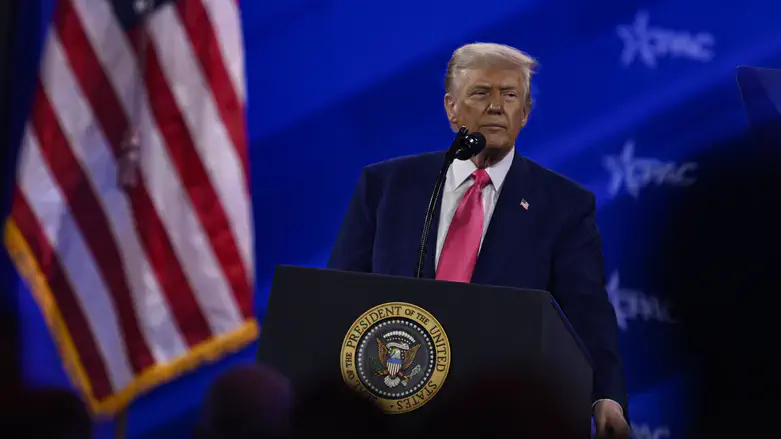
The US Supreme Court today (Wednesday) rejected US President Donald Trump's request to freeze $2 billion in foreign funding.
The vote was 5-4 against the Trump Administration's position, with Chief Justice John G. Roberts Jr. and Justice Amy Coney Barrett, the latter of whom was appointed by Trump during his first term, voting with the three liberal justices on the court.
The court decision also called on US District Judge Amir Ali to “clarify what obligations the government must fulfill.”
Ali had ordered the government to pay the frozen funds by Wednesday night of last week. Justice Roberts put a hold on Ali's order last week but voted to allow the order to stand today.
Justice Samuel Alito wrote in the dissenting opinion that a lower court judge should not have the power to issue such an order to the government.
“The government must apparently pay the $2 billion posthaste — not because the law requires it, but simply because a district judge so ordered. As the nation’s highest court, we have a duty to ensure that the power entrusted to federal judges by the Constitution is not abused. Today, the court fails to carry out that responsibility," Alito wrote.
The case centers on the freezing of USAID payments as the Trump Administration is seeking to reduce the foreign aid given out by the organization by 90% in an effort to reduce government waste. Multiple organizations that receive funding from USAID filed lawsuits claiming that the freezing of the funding they had been promised was illegal.
The order only applies to aid agreements reached before Trump took office.
Trump ordered a 90-day pause on foreign aid on his first day in office. Aid to Israel was one of the few exceptions that were unaffected by the funding freeze.
Last week, multiple experts revealed in a Congressional hearing that USAID funds were used to fund Hamas, Hezbollah, the Taliban, and other international terrorist organizations.
The hearing, titled 'America Last: How Foreign Aid Undermined U.S. Interests Around the World,' was held by the Committee on Oversight and Government Reform's Subcommittee on Delivering on Government Efficiency, and dealt with the recent revelations of waste and corruption at the USAID organization that were made public by DOGE's investigations.
Middle East Forum Executive Director Gregg Roman addressed the committee members about USAID's funding for terrorist organizations in the Middle East and beyond.
When asked by Rep. Tim Burchett (R-Tenn.) what terrorist organizations USAID has funded in addition to the Taliban, Roman responded, "We have assisted Al-Shabab in Somalia, there's been instances of the Hamzi network in Sudan, Hamas, Islamic Jihad, Hezbollah, Kata'ib Hezbollah, Hay'at Tahrir al-Sham in Syria. Dozens of terror organizations have received indirect assistance from US foreign aid."
"Let's use Gaza as our case study," he stated. "2.1 billion dollars in American taxpayers' money to Gaza since October 7th when Hamas invaded southern Israel. USAID money was going in terms of an emergency use authorization to try to go to parties that USAID formerly had a relationship with in the Gaza Strip. That had to have been vetted by OFAK, they should have been vetted against the special designated terror list from the State Department and from other Treasury organizations. Waivers were granted because they said that there was an emergency use to have that money come into Gaza, thereby jettisoning the usual, typical screening procedures. As a result, 90 percent of aid that was going from the United States by way of its agents in Gaza ended up in Hamas-controlled areas."
Roman called that "ridiculous," adding, "Essentially, what the US assistance to Gaza did was underwrite the ability for Hamas to survive until the ceasefire was just passed a few weeks ago. There was no strategic thought for it and there was no screening."

